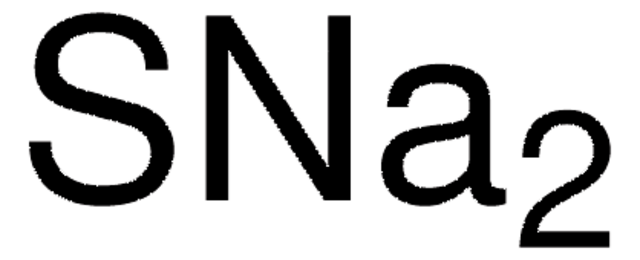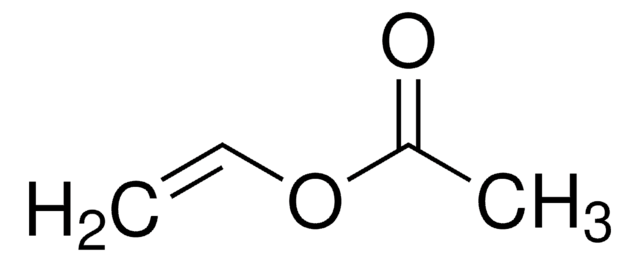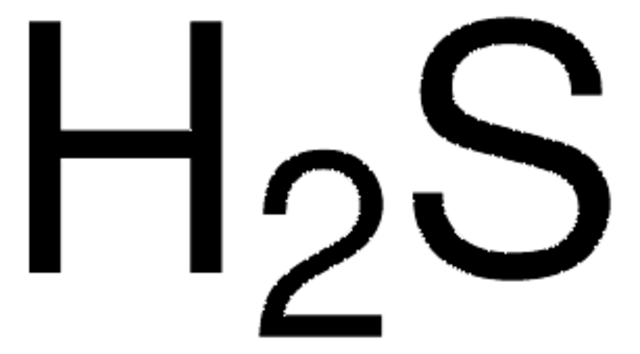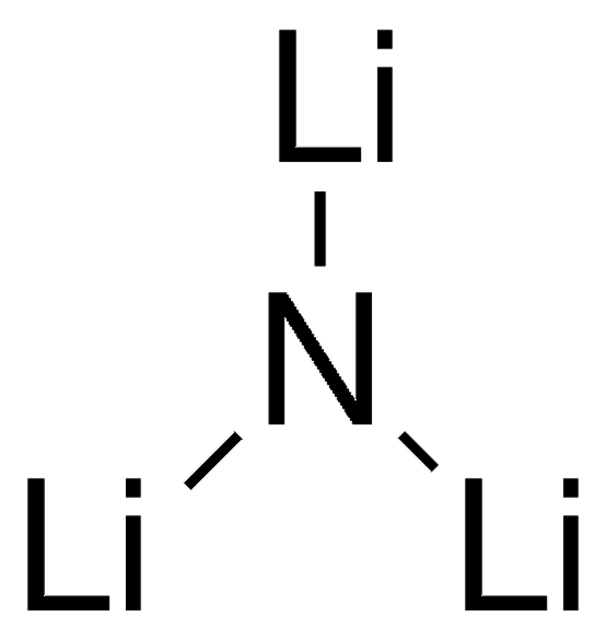213241
Lithium sulfide
99.98% trace metals basis
Synonym(s):
(lithiosulfanyl)lithium
About This Item
Recommended Products
grade
battery grade
Quality Level
Assay
99.98% trace metals basis
form
powder
composition
Li2S
reaction suitability
reagent type: catalyst
core: lithium
density
1.66 g/mL at 25 °C (lit.)
application(s)
battery manufacturing
battery manufacturing
storage temp.
2-8°C
SMILES string
[Li]S[Li]
InChI
1S/2Li.S
InChI key
ZWDBUTFCWLVLCQ-UHFFFAOYSA-N
Looking for similar products? Visit Product Comparison Guide
General description
Application
Features and Benefits
Signal Word
Danger
Hazard Statements
Precautionary Statements
Hazard Classifications
Acute Tox. 3 Oral - Eye Dam. 1 - Skin Corr. 1B
Supplementary Hazards
Storage Class Code
6.1B - Non-combustible acute toxic Cat. 1 and 2 / very toxic hazardous materials
WGK
WGK 3
Flash Point(F)
Not applicable
Flash Point(C)
Not applicable
Personal Protective Equipment
Choose from one of the most recent versions:
Already Own This Product?
Find documentation for the products that you have recently purchased in the Document Library.
Customers Also Viewed
Our team of scientists has experience in all areas of research including Life Science, Material Science, Chemical Synthesis, Chromatography, Analytical and many others.
Contact Technical Service










